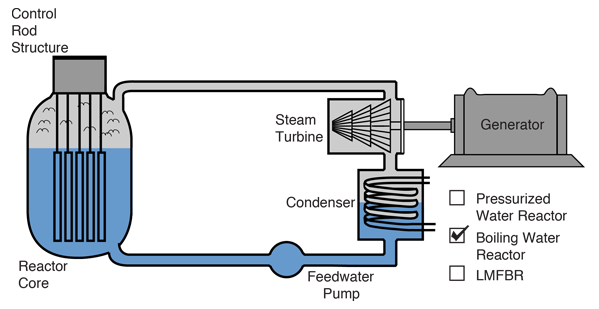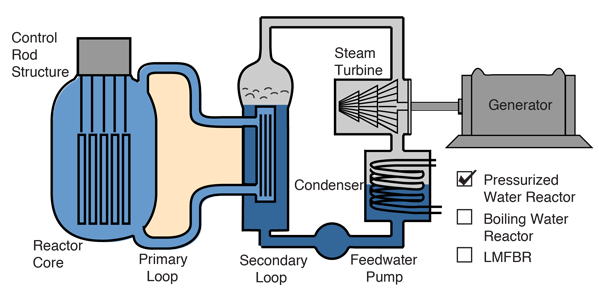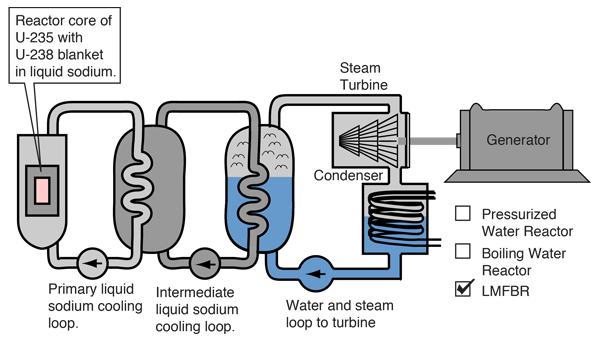Boiling Water Reactor
In the boiling water reactor the same water loop serves as moderator, coolant for the core, and steam source for the turbine.

In the boiling water reactor (BWR), the water which passes over the reactor core to act as moderator and coolant is also the steam source for the turbine. The disadvantage of this is that any fuel leak might make the water radioactive and that radioactivity would reach the turbine and the rest of the loop.
A typical operating pressure for such reactors is about 70 atmospheres at which pressure the water boils at about 285íC. This operating temperature gives a Carnot efficiency of only 42% with a practical operating efficiency of around 32%, somewhat less than the PWR.
Fission concepts
| HyperPhysics***** Nuclear | R Nave |

